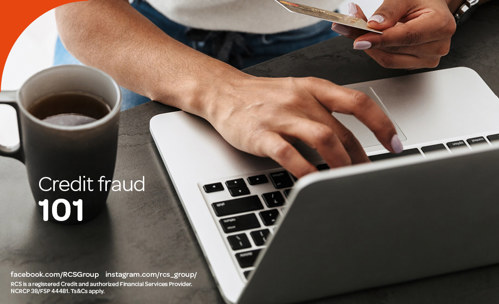Credit Fraud 101
10 AUGUST 2023
As we conduct our day-to-day transactions, credit scams and fraudsters are targeting our vulnerabilities to gain access to money, assets, and identity. Use this guide to get clued up on all things credit fraud-related.
What is credit fraud?
Credit fraud is the illegal and criminal use of another person’s identity and credentials to access/borrow money or use their credit cards. This type of identity theft is extremely prevalent in South Africa with R428.6M in overall gross losses on card transactions in 2019. Although this is a 2% decrease from the previous year.
The result of credit fraud is debt to your name made through fraudulent purchases. This may affect your future possibilities when applying for credit by causing your credit score to dip. To avoid this, educate yourself on the types of credit frauds and what you can do to prevent them.
Types of credit fraud
Phishing Scams
Phishing occurs when fraudsters attempt to get your sensitive personal information to transfer or access money and credit. These email scams can be incredibly detailed and easy to believe. You should never divulge personal information online if it’s not with your bank or a registered company you recognise.
Counterfeit Credit Cards
Your credit can be involved in credit fraud in a few ways. One of those being counterfeit cards, where your card has been swapped out or intercepted and counterfeits are made. This is done by taking the information on the magnetic strip to create a fake card.
Identity Theft
Your personal information can be stolen and used to commit credit fraud through stolen credit cards, driver’s license, account numbers, usernames, and passwords. These are accessed through non-shredded documents or phishing scams. Your stolen information can be used to set up bank accounts, bill payments, and make online transactions.
Card-Not-Present fraud
This type of credit fraud occurs when both the card nor the cardholder is present during fraudulent transactions.
How to identify credit card fraud
When it comes to your finances, always be vigilant and take note of every transaction online and offline. Not receiving an issued card in the mail could mean that someone has intercepted your card to make counterfeit copies. Another way to identify credit card fraud is through POS (Point of Sale) systems that skim your card details as you scan your card. In addition to this, never trust unauthorized transactions on your bank statements. These could be a sign of fraudulent activity.
How to avoid credit fraud
- Review and assess your monthly account statements regularly to keep an eye on transactions.
- Make sure you’re online shopping on secure websites when using your card.
- Always check that you’ve received your card back after making a purchase.
- Do not disclose your PIN to anyone.
- Report and lost or stolen cards immediately.
- Keep transaction slips to check against your bank statements.
- When transacting at an ATM, keep an eye on the card slot to make sure your card is not skimmed or replaced.
What to do if you’re a victim of credit card fraud
The first step you would need to do is to contact your lender or card issuer. If you suspect illegal activity query the transaction and your lender can look further into the matter. If an investigation is set your card will need to be frozen. Report the activity to local authorities, for example, SAFPS (Southern African Fraud Prevention Service) or Whistle Blowers (Pty) Ltd. As an extra precautionary step, take additional action to secure your credit by adding a fraud alert to authenticate your identity or a security freeze to your credit file.
Protect yourself from possible credit fraud attempts by staying vigilant and aware when making transactions. If you suspect any fraudulent activity, contact your lender and freeze or stop your credit card immediately. Transact safely!
MORE ARTICLES ABOUT
RELATED ARTICLES

Education
28 AUGUST 2025
SA Research: How Parents Impact a Child’s Financial Intelligence

Education
12 JUNE 2025
Cultivating Tomorrow's Leaders: Equipping Young South Africans for Life’s Challenges

Education
28 MARCH 2025
